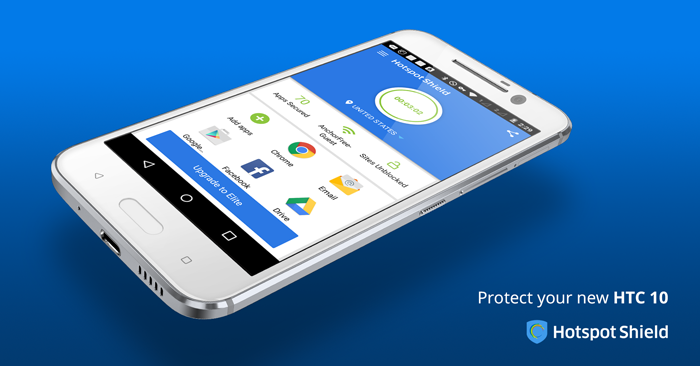How to get a Finnish IP address
The easiest way to improve your digital privacy is to switch your IP address using a VPN. We’ll …


The much-awaited HTC 10 has been finally released! With its impressive battery life, improved touch responses, solid build and design quality, and a 12 MP laser autofocus camera with optical image stabilization (OIS), the latest flagship device from the premium Taiwanese mobile phone manufacturer has been getting a wave of positive reviews from various online publications across the web, like Android Authority and Gizmag.
The HTC 10 easily ranks among this year’s most anticipated Android smartphones. In addition to its unique features such as the HTC Sense, OIS in both front and rear cameras, and BoomSound Hi-Fi edition speakers, the HTC 10 also has all the best features that Android Marshmallow devices have, like a native fingerprint sensor, improved battery life management, faster charging, and a better app permissions system.
But, being an Android device, the new HTC 10 is also susceptible to a wide range of threats, including but not limited to:
Malware attacks can happen online when you least expect it. A lot of websites can contain links in the form of useful pages that force your device into downloading malicious software, and accidentally clicking on these links can infect your device and allow a number of other malicious software to be installed.
Access to useful, free apps on the Play Store is one of the features that make Android devices attractive to users. But the prevalence of leaky apps–those that transfer information from your device to another source without your knowledge–on the Play Store means that your sensitive data is jeopardized.
A botnet is a system of interconnected devices that hackers can use for malicious activities like distributed denial-of-service attacks and ad fraud. Android devices are prone to being recruited into a botnet, which can happen upon a programmed installation of malicious software, which most of the time is unknown to the user.
When connecting to the internet via public hotspots, anyone else connected to the same hotspot can spy on your online session. This means they can monitor the websites that you visit and the activities that you do while online.
Your Android device is vulnerable to malicious software enabling hackers to secretly extract sensitive information from your device such as passwords, credit card transactions, and instant messages, and transfer them to a location that they can access.
This list is only the tip of the iceberg when it comes to the threats that can ruin your HTC 10 experience. But you don’t have to worry. The good news is that there are many effective ways you can protect your device, and one way to do this is by installing a virtual private network (VPN). Hotspot Shield is an example of this, and is one of the best free VPNs that you can download for your Android device.
Hotspot Shield VPN contains a lot of nifty features that can help you secure your HTC 10 from various threats. Installing it on your device brings security and protection to a whole new level; not only does it allow secure online sessions by providing an encrypted tunnel for all the data that go in and out of your device, it also lets you surf the web anonymously, making it almost impossible for cybercriminals to snoop on you and your online activities.
Hotspot Shield also offers added protection by preventing malware from accessing your device. Using a database of more than 3.5 million known malware strains and viruses, Hotspot Shield notifies you if a website or a link that you’re trying to access is infected. It then blocks that website or link, preventing your device from getting infected. It also secures your device when connecting via public hotspots.
Get Hotspot Shield for Android!
Below are additional benefits of using Hotspot Shield VPN:
Upgrade to Hotspot Shield Elite
Download Hotspot Shield for Android now and enjoy a safer and smoother user experience with your brand new HTC 10!
